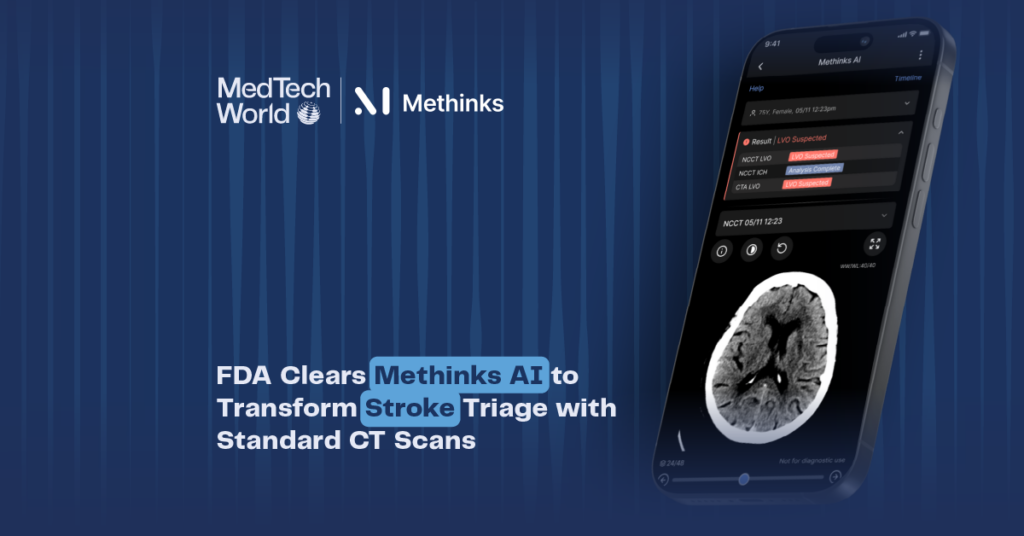
Michael Joe Cini
21st December 2022
Clinithink Partners with AstraZeneca for Early-Stage Lung Cancer Detection
Clinithink, the company that has developed Healthcare AI equipped with the understanding of unstructured medical notes, shakes hands with AstraZeneca Oncology UK. The partnership aims to find patients with lung cancer at an early stage where treatment is more effective.
The Partnership
Early detection and commencement of treatment are key in the management of lung cancer. The partnership between these two hopes to leverage AI in lung cancer screening, with the aim to increase the cure rate. Patients that could benefit from lung disease screening would be identified, leading to early disease detection and improved patient outcomes, thus reducing costs of management, which is globally significant, especially for patients at the later stages.
As a way of testing and establishing this approach, the first stage of the project is a retrospective study of patients’ unorganised EMRs that will reveal whether or not using AI technology to identify both symptomatic and asymptomatic patients who are in the early stages of the disease is possible and cost-effective. The results will then be used to develop predictive models that identify high-risk persons at an earlier, more treatable, stage of disease, thus improving survival rates and reducing the intensity of treatment needed.
The collaboration between Clinithink and AstraZeneca also aims to support the goals of the national lung cancer screening programme established by The UK National Screening Committee. While the partnership is being funded by AstraZeneca, it makes use of CLiX unlock, Clinithink’s technology that’s capable of processing millions of detailed medical records in hours to deliver valuable clinical insights.
Dr Satoshi, Head of oncology medical affairs at AstraZeneca Oncology UK, in an interview, said “Focusing specifically on early detection of lung cancer, our partnership with Clinithink is a great example within AstraZeneca Oncology of an external partnership with the common goal of improving UK cancer outcomes.
“The project will test whether it is possible to predict which individuals might have lung cancer, while they are still at the early stages of the disease process.”
If the first phase of this project is successful, the team will be charged to develop a prospective model in mid-2023 to prove the validity and real-life application of the approach.
Lung Cancer
Lung cancer is the leading cause of cancer-related deaths in developed countries. Every year, roughly 1.8 million new cases of lung cancer are diagnosed worldwide. In 2012, about 1.6 million people died of lung cancer. In 2020, it was evaluated that about 30,000 Canadians will be diagnosed with lung cancer, with a total of 21,000 deaths. It is projected that the number of lung cancer deaths will increase to 3 million in 2035. With lung cancer topping the list, the global cancer burden is estimated to double by 2050.
In the United Kingdom, lung cancer is the second most common cancer, with approximately 35,000 death each year. It is the biggest cancer killer, as the 5-year survival is only 16% in the UK. The main reason for the poor prognosis is that people do not develop symptoms until the disease is advanced and harder to treat or cure. 75% of patients are diagnosed at an advanced stage when treatment is unlikely to be successful. The survival rate peaking at 90% if the disease is diagnosed at the earliest stage drops drastically to 20% if the disease is diagnosed at the most advanced stage.
The current diagnostic tools, including different types of imaging complemented with a pathological assessment of biopsies, do not enable diagnosis at the early stage of the disease. Therefore, searching for new methods to diagnose lung cancer early and accurately is crucial, especially in screening high-risk populations, like smokers, toxic occupational places, exposure to fumes, and others.
The struggle for early-stage detection
Over the years, many methods of diagnosing lung cancer have been discussed, such as radiographic screening and diagnosis, sputum examination, bronchoscopy and lung tissue biopsy (the gold standard). However, these methods have their limitations. For instance, even though white light bronchoscopy (WLB) is the most used diagnostic tool for obtaining a definite histological diagnosis of lung cancer, it has significant diagnostic limitations for pre-malignant lesions. These lesions are composed of a few layers of cells with a thickness of 0.2–1 mm and a diameter of a few millimetres, making them hard to be visually detected.
Another proposed method of diagnosing lung cancer is by using biomarkers. Lung cancer results from multistage carcinogenesis with gradually increasing genetic and epigenetic changes. Screening for the characteristic biomarkers could enable the diagnosis of lung cancer at its early stage. This seemingly new method could be a means to overcome the barriers to early lung cancer screening and diagnosis. However, there are still some concerns about this method.
A 2021 study by researchers at Massachusetts General Hospital (MGH) demonstrates that a predictive model can detect lung cancer from alterations in blood metabolites. The constructed predictive model is capable of identifying people who may be harbouring lung cancer via blood sample screening.
Early this year, researchers at Peking University People’s Hospital in China also developed a rapid diagnostic blood test which may detect early-stage lung cancer. This noninvasive test, Lung Cancer Artificial Intelligence Detector (LCAID), checks the levels of lipid biomarkers in plasma samples.
A clinical trial directed towards diagnosing lung cancer early was conducted at Royal Papworth Hospital, Cambridge. Using technology from Cambridge Science Park-based Owlstone Medical, the clinical trial aims to test if ethanol detected in exhaled breath can be used for the early diagnosis of lung cancer. According to Billy Boyle, CEO at Owlstone Medical, the Breath Biopsy has proven to be extremely effective at detecting VOCs in the breath.
Researchers are in a continual search for better, more sensitive methods for early diagnoses of lung cancer.
Looking forward to a blockbuster 2023 with Med-Tech World
SiGMA Group is breaking ground across the world, bringing Med-Tech World to a number of new and emerging markets. Visit the Med-Tech World website to stay up to date on every upcoming feature during 2023!




